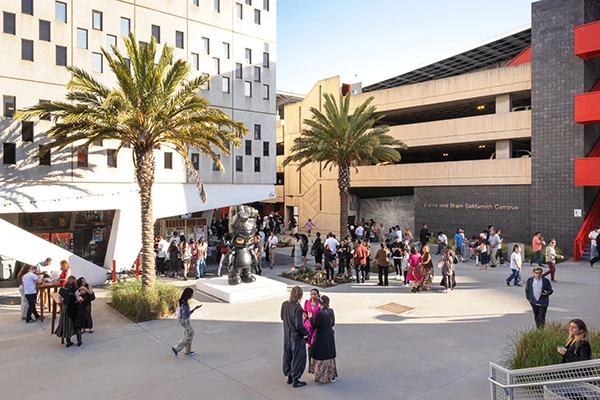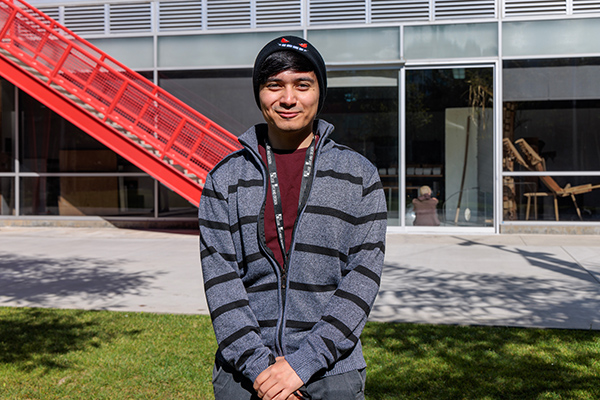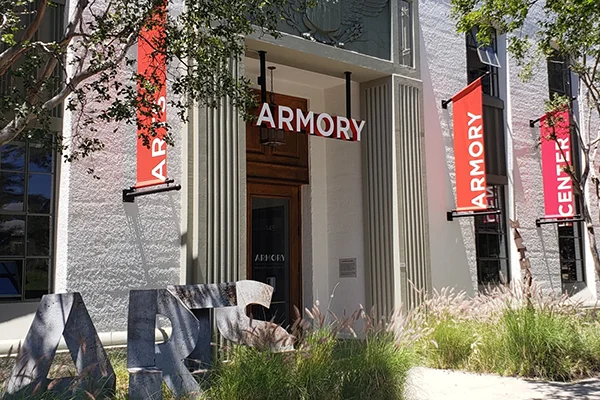Alison Saar, ’81 MFA Fine Arts, Debuts Olympic Sculpture
She also produced illustrations for the Octavia Butler novel Kindred and spoke with Art Is Awesome.
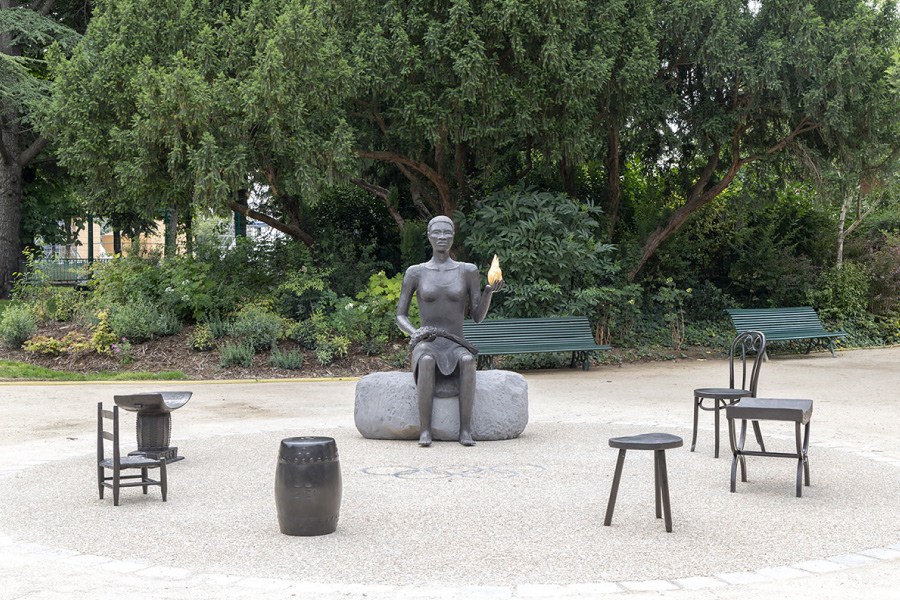
Alison Saar (’81 MFA Fine Arts) has been busy this year. In March, she was selected by the International Olympic Committee (IOC) to create a bronze sculpture, Salon, which is now on display in the public garden of the Champs-Elysées, timed to the
2024 Paris Olympics. Saar was chosen from a shortlist of eminent American artists,
a gesture reinforcing the connection with the next Olympic Games being held in Los
Angeles in 2028. Saar, a native Angeleno (and daughter of Betye Saar, former Otis
faculty member and noted assemblage artist, and painter and art conservator Richard
Saar), sustainably produced the work in France and conceptually linked the City of
Lights with the City of Angels in the piece.
“I am deeply honored to have been selected to create the Olympic sculpture. It is my hope that this work of art, a gift to the people and the city of Paris, will become a gathering space for the public to experience the spirit of friendship and interconnection across cultures and borders,” Saar said at her announcement. You can also watch Saar discuss her Olympic sculpture with France24.
Though this is her first public artwork outside the United States, Saar’s work is
frequently shown internationally in solo and group exhibitions. Currently, she is
included in 5: Five Years of Acquisitions, a group show at the Cameron Art Museum in Wilmington, North Carolina, through October
6, 2024. Her work is displayed alongside works by Alexander Calder, Marc Chagall,
Salvador Dali, Henri Matisse, Pablo Picasso, and Andy Warhol, among others. Saar also
recently installed another new work, Tree Souls, at the Equal Justice Initiative’s Freedom Monument Sculpture Park in Montgomery,
Alabama. Bearing Witness, her sculpture of two 13-foot bronze figures, will adorn Destination Crenshaw—the 1.3-mile-long open-air museum along Crenshaw Boulevard—when the project is completed
(current projections are for later this year).
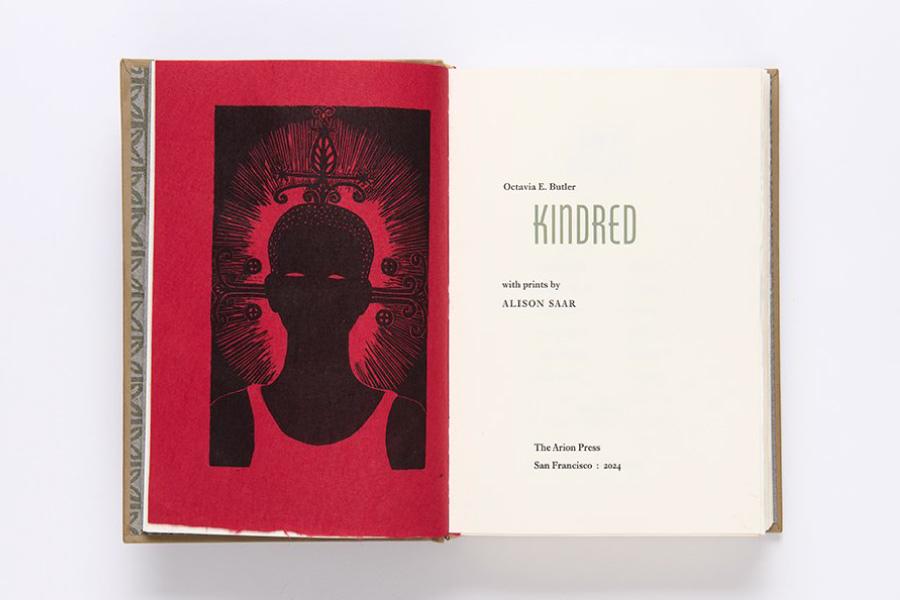
Though she works primarily in sculpture, multimedia, and installation pieces, Saar
also has a large body of printwork, encompassing lithographs, etchings, and woodblock
prints. She recently collaborated with Arion Press on a limited edition of Octavia Butler’s book Kindred, for which she carved 14 original linoleum block cuts that illustrate the noted work.
Her prints include a frontispiece, eight full-page renderings of pivotal scenes, a
double-page centerfold spread, multiple patterns for the endsheets and binding, and
a cameo portrait of the book’s protagonist, Dana Franklin.
Saar and Butler both hail from California and address in their work themes of race, gender, culture, and spirituality, all while illuminating the African diaspora and Black female identity.
The limited edition book comes in a fine press edition of 210 copies ($1,300 price tag), as well as a deluxe edition of 40 copies ($4,100), which includes a signed relief print by Saar and a 12-notecard set featuring three images from the series.
Emily Wilson, a San Francisco-based writer and host of the podcast Art Is Awesome, recently spoke with Saar about her work on the limited edition of Butler’s book, including how she selected scenes from the novel to illustrate and how other cultures have influenced her work. “I started out taking [the book] chapter by chapter and reading it and writing down possible images. And then those images sort of developed. Some of them fell by the wayside, and some of them I sent [over to Albion]. I gave them maybe more than they asked for, and they were really lovely in trying to accommodate me,” Saar says of the collaboration with Albion Press.
Wilson asks every podcast guest where they go for inspiration. Saar’s happy place is somewhere she spent a lot of time as a child, seeing as her father worked as an illustrator there. The Natural History Museum was always a “grand, mysterious space” to Saar growing up. “We were in the underground where they’re doing the taxidermy… and there are drawers of animals and things like that…. When I’m kind of feeling a lull, I like to go back there and just be in these dark halls and look at stuff. I really love that,” she says.
Related News
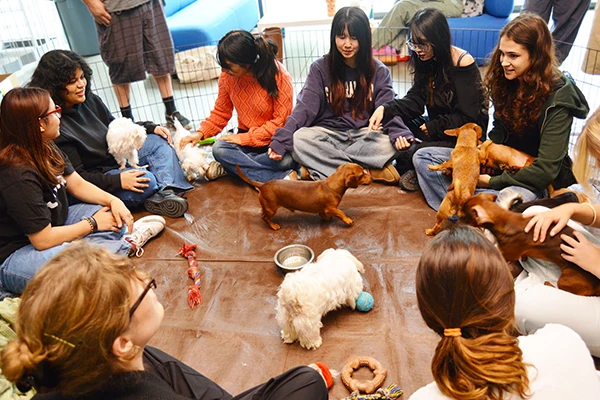
Otis College Students are Supported by a Wraparound Network of Care
February 13, 2026
